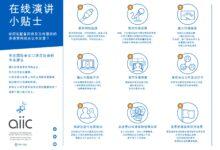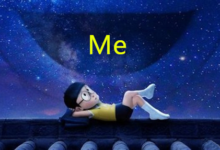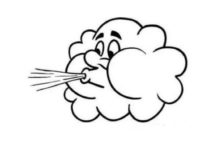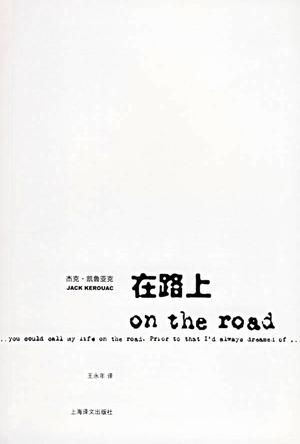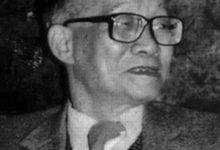A World Apart
“Get a grip, Maggie,” I reassured myself, “you’ve seen this before, remember?” Secretly though, I knew it was a lie. I really hadn’t seen this before, not even in surgery.
“Are you Margaret Pennet?” A soft voice asked amid the shouts, bringing my attention back to the moment.
“Yes, Sir.” I replied, somewhat embarrassed. “Uh, Maggie actually, Captain. I’m sorry, I didn’t see you.”
“Welcome aboard, Lieutenant. You’re not afraid of blood,are you?” he remarked, casually scratching his nose with a red-streaked index finger.
“No, Sir” I whispered, but, looking around the tent, I was afraid, I really was!
My days as an Army nurse were indistinguishable, with on-duty shifts extending eighteen to twenty hours at times, allowing only brief periods for naps, coffee, and bad food. In between, the choppers of wounded kept coming, an endless supply of manpower and job security. While I grew accustomed to Da Nang’s version of medical triage, and the constant activity of bandages, IV bottles and tourniquets, the war in Viet Nam raged. There was never any time to make friends, or foster relationships, but my most precious moments were rare snatches of time reading letters, from my grandfather, in Maine. It was the only connection that I had with all that remained human, loving, and mine.
Four and a half months of duty passed so slowly, it seemed as though my sense of time moved in slow-motion. Vietnamese villagers, civilians employed by the Army, often visited the compound with their families, showing-off their children to those of us who carried handy supplies of Hershey bars and hard, candy treats. In the beginning, it was in the faces of these children that I found some beauty in Viet Nam. Tiny creatures, with black hair and puffy cheeks, squealed with delight, and giggled while tied tightly in the papoose swaddling of cloth, used to carry them on their mother’s backs, or chests. For a while, my life became a bit tolerable, and the children remained my only power of keeping my sanity and dignity, in a world filled with blood and death. Perhaps it was my own fault, for being so naive and overwhelmingly optimistic with this new life, for when tragedy came my way, in the end, I could not contain my grief, or sense of inhumanity which causes one of us to take the life of another, especially a child.
It was 1969 now, and the spring monsoon season poured torrential rains, with pounding intensity for several months. The compound, once cracked and dry, became a muddy mess, with tiny ravines of water flowing in unimportant directions. By 4 o’clock the medical staff had finished at least three incoming choppers of wounded, and equipped a hospital evacuation team to Saigon. Exhausted and hungry, I untied my green surgical mask and walked outside the tent, face upward, hoping the rains would revive me enough to enjoy a good, hot dinner.
Not surprisingly, the cool rain felt good on my face. Whatever my shame and guilt was for this dirty war, it could never be washed clean by the rain. The forgiveness would have to come from a much higher source, than the monsoon rain clouds bursting overhead.
Suddenly, through the downpour, I noticed an old mamasan from the village, pushing her way through the tree line, and lines of wounded, carrying a squalling infant in her arms. I knew her. She was Sergeant Casey’s yobo, a woman he was taking care of and sleeping with until it was time for him to return to his wife and family, in the States. Setting up housekeeping with a local mamasan was the thing to do, in Viet Nam. No one back home had to know, and no one blew the whistle. Looking back, it gave “Don’t ask, don’t tell” a whole new meaning to the military.
“Gee-I, you take –.you take,” she insisted, aggressively, reaching up quickly, pushing the child toward me. I instinctively took the baby in my arms, without thinking. I had done it a hundred times before, and it was the sort of thing that happened everyday with the villagers, who handed their children to American soldiers, hoping for their favors of Candy-rations and other treats. This time however, within a second, the old woman turned and ran back into the trees, leaving the child, still crying and kicking, in my arms.
“Hey mamas an,” I called after her, following behind, “you forgot your kid!” I didn’t need this, I really didn’t.
From across the compound, perhaps a hundred yards away, someone yelled in my direction. Turning, I recognized Captain Collins, and several other Army officers, trying to get my attention by motioning in military fashion that I was to stand to, and not move. I understood the order.
“Maggie, listen to me now,” Captain Collins directed through the rain, holding his hands up showing caution. “Ya’ alright?”
“Yea, what’s wrong?” I didn’t understand.
“Do you see that sand pit over to your right? Look now. Do you see it?”
I nodded.
“Throw the baby over there. Maggie listen to me! Do it now!”
“Yes, Sir, but—,” I didn’t understand. It was crazy, lunatic: not Christian. How could I kill a child? I froze, undecided.
“Maggie!” Captain Collins called again, his voice demanding; this time, more immediate.
“Throw that kid, Lieutenant! Do it! NOW! That’s an order!”
I heard nothing, neither the pounding of the rain, nor my heartbeat, or the screams of the baby in my arms. I looked at the tiny, round face with black eyes and without really understanding why, threw the infant as far to my right as I could, in the direction of the sandpit. Within moments, I was thrown into a muddy trench , as a triggered bomb exploded, sending body-parts, of a tiny, innocent Vietnamese baby, all over the compound.
Captain Collins simply said: “The old mamasans tape bombs to the inside of the kid’s legs because they know that when they wake up and move, they’ll blow you and the whole compound clear to Jesus. One less gook to worry about, anyway! Want a beer, kid?” I heard him mumble under his breath, as he walked away from me, still stunned and curled in the mud: “Stupid broad.”
“Hard ass, ain’t he?” One of the other officers remarked, as he helped me to my feet. Another corpsman just walked off, into the downpour, shaking his head: “Don’t mean anything’, just don’t mean a damn thing.”
After a few moments, I walked toward the huts, monsoon rains still pouring down, this time mixed with the smell of sulfur, smoke and blood, rippling in the water pools. For almost two hours I searched the compound for the delicate body parts of the exploded infant, as my sense of human decency directed me to do the right thing. It’s funny what goes through one’s mind at a time like this. I remember kneeling on the ground, thinking if I should dig one large hole, or several, to bury this child. In the end, I dug only one large burial plot, with my hands, and carefully placed the severed baby-parts, some still missing into their final resting-place, and marked the grave, with a piece of bamboo laying nearby. Then, I did something I had not done since I was a child. I covered my face with my hands in shame, and cried for a very long time.
恍如隔世
“振作起来,玛格。”我给自己打着气,“你见识过这些场面的,记得吗?”事实上,我心里很快知道这只不过是个谎言。我从没有见过这样的场面,即使在外科手术台上也没有见过这样的场面。
“请问你是不是玛格丽特?彭妮特?”一个温柔的声音从这嘈杂声中响起,把我的注意力重新拉回了现实。
“是的。我是。”我回答道,感到有点难为情。“嗯,叫我玛格可以了。上尉,对不起我没有看到你。”
“欢迎你的到来,中尉。你对血不会感到害怕吧?”他问道,漫不经心的用他那沾了血的食指刮了刮鼻子。
“我不怕。”我小声回答道。但是在看了营救营的周围,我是真感到害怕,非常害怕!
我作为个战地护士的日子已经记不清了,只记得时不时的要加班,每天的工作时间长达18到20个小时。期间只有很短的时间小憩一下,喝点咖啡,再塞点难以下咽的食物。直升飞机源源不断地给我们送来伤员,我们整天有干不完的工作,根本不愁会失业。渐渐地我熟悉了岘港救治点的工作,每天都是做不完的包扎、吊盐水、止血,而越南的战争也逐渐升级。我根本没有时间去交朋友,或者说是与他人培养关系。对我来说,最开心的就是看到爷爷从缅因寄来的信。这成了我与外界人类社会唯一的接触方式,让我知道人与人间的关爱,知道亲人对自己的爱。
四个半月的工作时间过得特别慢,好像我的生物钟也慢了下来。一些越南村民,即受雇于美国军队的越南平民,经常带着他们的家人来到我们的军事基地。他们常常很自豪地带着他们的孩子来,我们拿一些赫尔希牌巧克力,或各种糖果来招待他们。从这些小孩身上我看到了越南的美丽。他们都长得小小的,黑头发、肥嘟嘟的脸。高兴起来就咯咯大笑,如果婴儿襁褓裹得太紧的话,他们也会哇哇大叫。有了这些襁褓,他们的妈妈就可以把他们背在背上或者放在胸前走来走去。从那一刻起,我才觉得我的日子变得稍微可以忍受。在这个充满了血腥和死亡的地方,是这些天真的孩子让我保留了人的尊严,使我没有变疯。或许这正是我的错,对这些幼小的生命,我的想法太天真,太乐观。所以当悲剧发生时,我控制不了自己的悲伤,彼此相残,却要赔上一个小孩的生命,这是多么的不人道。
在1969年的春天,季风带来了大量的降雨,瓢泼大雨密密麻麻地下了好几个月。原来那干裂的军事基地成了一片泥泞之地,地上形成了无数细细的小水沟,雨水在其中到处乱跳。到下午4点为止,直升飞机已经送了三趟的伤员过来,救疗队顺利完成了对伤员的救治,还派了一组医疗小分队去支援西贡。一天工作下来我觉得又累又饿。解下我的绿色医疗口罩,我走出了救护营。我仰着头走在雨中,希望雨水能够把我打清醒,然后吃顿热乎乎的饭菜。
果然,冰凉的雨水打在脸上很舒服。对这场非正义的战争,我一直感到耻辱,雨水是永远洗不掉我的罪恶的!只有上天才可以宽恕我的罪恶!
突然,在滂沱大雨中,我看见远远地跑来一个老妇人。只见她穿过树丛,再从伤兵堆里跑过来,手里还抱着一个嚎啕大哭的婴儿。我认识她!她是凯西军士长家的人。她一直得到凯西的照顾,在凯西回到美国家人身边之前,他们还住在一起。在越南的美国驻军中,找一个当地的女人来做家务是件很平常的事。美国的家人不知道,也没有人会到处乱说。现在想起来,我对部队的“不打听,不乱说”的做法才有了新的理解。
“嗯,你拿着!”她坚持着,很用劲地把孩子往我身上送。我想也没想,很本能地接过了那孩子。这种事情我再熟悉不过了,每天都有一些村民把他们的孩子往美国大兵身上送,希望能得到一些糖果饼干之类的好处。可这一次,不到一秒钟,这位妇人扭头就走,完全不理睬我手中的孩子还在又哭又闹。
“喂,老妈妈,”我跟在她后面喊,“你忘了你的孩子啦!”我可不要这小孩,真的不要。
在基地的另一边,大概一百尺左右的地方,有人冲我大声喊。我回过头,原来是柯林斯上尉还有其他的一些军官们。他们比着军队的手势,要我原地不要动。我很快明白了这个命令。
“玛格,现在听我说,”柯林斯上尉在雨中举着手,冲我喊“你没事吧?”
“我没事,怎么啦?”我给搞糊涂了。
“看到你右边的沙坑没有? 现在就看,看到了吧?”
我点了点头。
“把那小孩扔到那里去!玛格,听我说!现在就扔!”
“是,长官。但是……”我还是没搞明白。这简直是疯了,一点都不像基督徒的做法。我怎么能杀一个小孩呢? 一时间我楞在那里。
“玛格!”柯林斯上尉又喊了起来,他的声音很严厉,听起来也更紧急。
“扔掉那个小孩,中尉!快扔!扔!这是个命令。”
我什么都听不到了。雨声、心跳声、手里抱着孩子的哭声,统统都听不见。我看了看那小小的圆嘟嘟的脸,还有那黑色的眼睛,就这样带着疑惑,用尽全力把这小孩扔了出去,扔到了右边沙坑的方向。很快传来了爆炸声,我也被摔到一个泥泞的战壕里面。这个娇小无辜的越南婴儿就这样被炸成粉碎,碎片散在整个基地。



